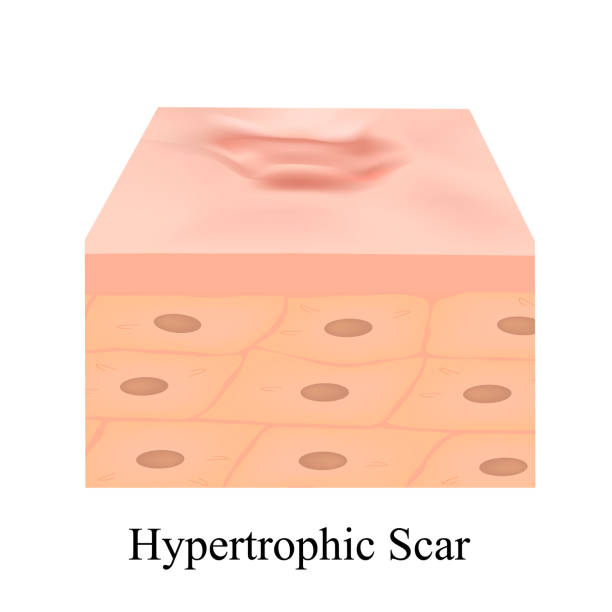Different Types of Acne Scars: Your Complete Guide

Acne scars can linger long after the blemishes themselves have healed, affecting both the appearance and confidence of those who experience them. Understanding the different types of acne scars is crucial for effective treatment and management. Let's delve into the world of acne scars and explore the various options available for treating and minimising their appearance.
Read some of our previous articles
Understanding Acne Scars
What Causes Acne Scarring?
Acne scars develop as a result of the skin's healing process after severe acne lesions. Various factors contribute to their formation, including inflammation, the type and severity of acne, and individual skin characteristics.
Importance of Identifying and Treating Acne Scars
Identifying the type of acne scars is essential for determining the most suitable treatment approach. Proper treatment not only improves the appearance of scars but also boosts confidence and overall skin health.
Types of Acne Scars
Atrophic Acne Scars: Depressed Scarring
Atrophic acne scars result from a loss of tissue and collagen beneath the skin's surface, leading to depressions or indentations.
Icepick Scars

Icepick scars are narrow, deep scars that resemble small puncture marks on the skin.
Boxcar Scars

Boxcar scars have a wider base and sharply defined edges, creating a box-like appearance on the skin's surface.
Rolling Scars

Rolling scars cause wave-like undulations in the skin due to the loss of collagen fibers.
Hypertrophic and Keloid Acne Scars: Raised Scarring
Hypertrophic scars are raised scars that develop when the body produces too much collagen during the healing process.
Hypertrophic Scars

Hypertrophic scars remain within the boundaries of the original wound but protrude above the skin's surface.
Keloid Scars

Keloid scars extend beyond the boundaries of the original wound and can continue to grow over time.
Treatment Options for Acne Scars
Topical Treatments for Mild Acne Scarring
Topical treatments such as retinoids and chemical peels can help improve the appearance of mild acne scars by promoting cell turnover and collagen production.
Retinoids
Retinoids are vitamin A derivatives that encourage skin cell regeneration and help fade acne scars over time.
Chemical Peels
Chemical peels involve the application of a chemical solution to the skin, which exfoliates the outer layers and promotes smoother, more even skin texture.
Invasive Procedures for Moderate to Severe Acne Scarring
Invasive procedures like microneedling and laser resurfacing offer more intensive treatment options for moderate to severe acne scarring.
Microneedling
Microneedling involves creating controlled micro-injuries in the skin to stimulate collagen production and promote skin renewal.
Laser Resurfacing
Laser resurfacing uses concentrated beams of light to remove the outer layer of skin, revealing smoother, healthier-looking skin beneath.
Home Remedies and Natural Treatments for Acne Scars
DIY Remedies for Minimising Acne Scars
Several home remedies, such as aloe vera and vitamin E oil, can help reduce the appearance of acne scars when applied topically.
Aloe Vera
Aloe vera has soothing and healing properties that can help fade acne scars and promote skin regeneration.
Vitamin E Oil
Vitamin E oil is rich in antioxidants and has moisturising properties that can improve the appearance of acne scars over time.
Herbal Treatments and Essential Oils for Acne Scar Reduction
Tea Tree Oil
Tea tree oil possesses antibacterial and anti-inflammatory properties that can help reduce inflammation and prevent infection in acne scars.
Rosehip Seed Oil
Rosehip seed oil is rich in essential fatty acids and vitamins that promote skin repair and regeneration, making it beneficial for fading acne scars.
Prevention and Skincare Tips to Avoid Acne Scarring
Proper Acne Management Techniques
Gentle cleansing and exfoliation, along with sun protection, are essential for preventing acne scars from worsening.
Gentle Cleansing and Exfoliation
Using mild cleansers and exfoliants can help prevent further irritation and inflammation that can exacerbate acne scars.
Sun Protection
Applying broad-spectrum sunscreen daily can protect the skin from harmful UV rays and prevent post-inflammatory hyperpigmentation in acne scars.
Lifestyle and Dietary Changes to Promote Skin Healing
Balanced Diet with Skin-Friendly Nutrients
A diet rich in vitamins, minerals, and antioxidants supports skin health and can aid in the healing process of acne scars.
Stress Management Techniques
Stress can exacerbate acne and delay the healing of acne scars. Practicing stress-relief techniques such as meditation, yoga, or deep breathing can promote overall skin health.
Related articles:
Frequently Asked Questions
Determining the type of acne scars you have typically requires a consultation with a dermatologist or skincare professional. They can assess your skin and provide an accurate diagnosis based on the appearance and characteristics of your scars.
The type of acne scars that typically fade over time with proper treatment and care are mild to moderate atrophic scars, such as shallow boxcar or rolling scars. However, severe scars like icepick scars or deep atrophic scars may require more intensive treatment to improve their appearance.
Icepick scars, which are narrow and deep, are often considered the most challenging type of acne scars to treat due to their stubborn nature and the limited effectiveness of topical treatments alone.
Cystic acne, characterised by deep, pus-filled pimples that develop beneath the skin's surface, is most likely to cause scarring. These inflammatory acne lesions can damage surrounding tissue and hair follicles, leading to more severe and persistent scars.





